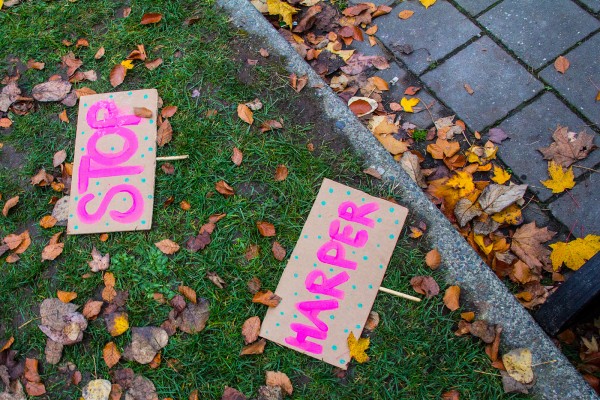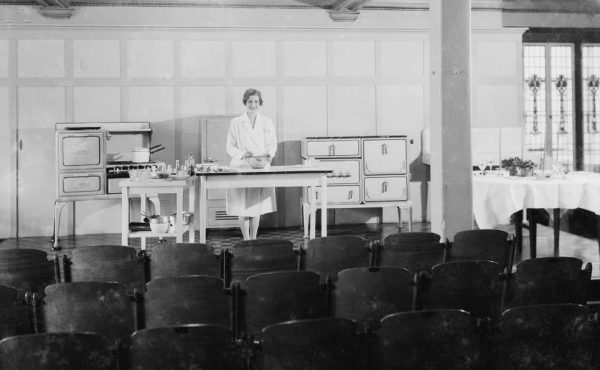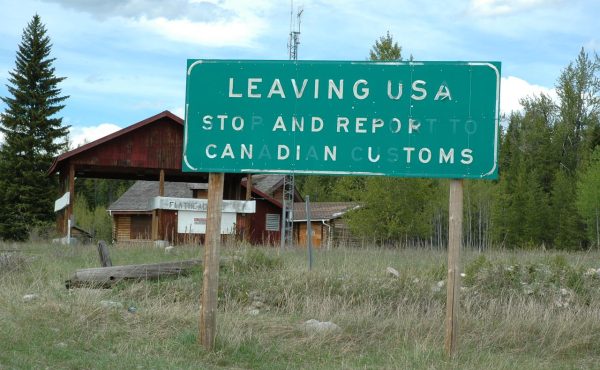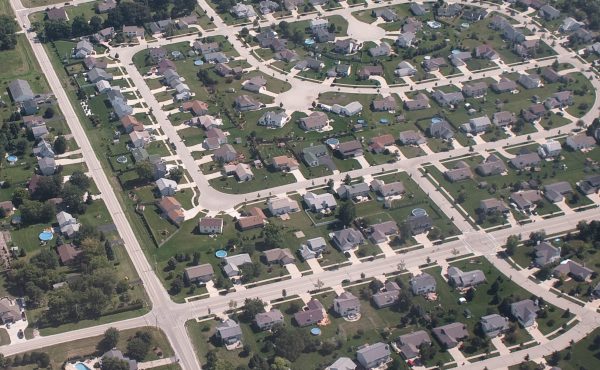As Stephen Harper’s Conservatives inflict their limbic system politics on voters who are somehow unable to see themselves as pawns in the hands of a gang of nativist demagogues, it seems to me there are two increasingly likely outcomes at the end of this miserable, hate-filled journey:
One, the anyone-but-Harper vote rapidly de-camps from the collapsing NDP and coalesces around Justin Trudeau’s Liberals, producing a minority government.
Two, the Liberals merely swap out a bunch of seats with the NDP while the Conservatives nail down their base and drain enough support from Team Mulcair to win a second majority, or at least a third minority.
My guess: what’s behind door number two.
Imagine.
In fact, when Harper embarks on his fourth and last term, I also predict he’ll ram through an extremist agenda that will make his policies to date feel like a warm bath. Indeed, the campaign’s hysterical, race-baiting tenor is strongly suggestive of what awaits. If he wins, Harper will have nothing to lose. He will go for broke. It’s legacy time.
I have never in my life experienced a federal race where the antipathy, and the crushing sense of betrayal about what it presently means to be Canadian, has run so high. Four years in, we clearly see not just the cumulative damage of Harper’s incrementalist agenda on our national institutions, but also the shocking wounds inflicted on Canada’s international reputation, and our domestic political and social culture.
It appears Canada can now do hatred with the best of them. We have leaders who fixedly bully a minority of a minority of a minority, and McCarthy-ite MPs who creepily call out “the enemies of Israel.” Dual citizenship, long a point of pride for a country defined by immigration and multiculturalism, turns out to be both provisional and revocable. Meanwhile, we are mocked in the international media for twilight zone promises to weed out “barbaric cultural practices.”
Harper and his war room seem willing to say or do anything to win. Nothing, no matter how appalling, is off limits (except, it seems, the issues that really matter, like the economy and sustainable development). As Calgary mayor Naheed Nenshi, a good-humoured centrist not given to personal attacks, said over the weekend, “This is disgusting and it is time for us to say, stop it.”
Yes, it is. Yet if Harper wins a second majority, we’ll all be implicated in an outcome so many Canadians purport to oppose. Look around you. Look in the mirror: it’s your fault, too. Doesn’t matter if you didn’t vote for the guy.
Why? Because Canadians on the centre-left failed to demand that the two opposition parties find common ground and present a consensus-based alternative to highly frustrated voters. By tolerating their rivalry through a decade of increasingly disturbing Conservative rule – through the census fiasco, the silencing of scientists, the flouting of election laws, the gutting of environmental regulation, the politically motivated foreign policy, the tactically fashioned attacks on refugees, the medieval criminal justices stances, the terrorist fear-mongering, and on and on – we have allowed the NDP and the Liberals to play into Harper’s hand.
Consequently, hundreds of thousands of disgusted voters find themselves in the closing innings of an election confronted by the folly of phoney choice and the problem of the narcissism of small difference writ large on our political structures.
Yes, I am familiar with all the weary old partisan arguments from both camps on why such a merger isn’t possible culturally, ideologically, or organizationally. I know all about the NDP’s pieties and the Liberals’ arrogance. I know who supported Bill C-51 and who didn’t. At this juncture, however, the wedges barely matter. Nostalgia for the heroic era of the CCF or the collaborative era of Broadbent and Trudeau is irrelevant, as are partisan appeals based on which of the two was responsible for this strand of our public policy or that controversy in our shared political history.
All that back-story is now utterly besides the point for the simple reason that in this election, the Liberals tacked sharply left while the NDP tacked sharply right, proving that both parties were competing for the same voting block, i.e., that large mass of Canadians who’ve had it up to here with Harper. The reality is that Mulcair’s NDP, circa 2015, owes less to Tommy Douglas than it does to Paul Martin.
While past ideological shadings may once have been determinative for voters, they are not useful in confronting our present political crisis. Over and over, I hear people fervently opposed to the Conservatives tell me they’ll simply vote based on their best guess as to who’s going to be in the lead a week out, or whomever is assured to win in their own riding.
It’s not so much about strategic voting, but rather a broad expression of exasperation and anger with the consequences of a bifurcated political left. We’re like consumers who’ve moved way beyond the power of brand. We want toothpaste, and it no longer matters to us whose logo is on the tube.
The massive irony here is that Harper was the direct beneficiary of a concerted effort, led in the early 2000s by pundit David Frum and others, to unite the right. After Preston Manning’s Reform Party demolished the pan-Canadian Tory coalition built by Brian Mulroney, the fragmentation on the right provided the structural conditions that allowed Jean Chretien to win three majorities in a row.
It’s important to note that the original actors in the unite-the-right movement came from outside the various party establishments. After all, parties are clannish, competitive, and programmed to gather power into themselves. Outsiders must cajole and shame the Liberals and the NDP into negotiating a viable alternative that has the critical mass and the programmatic appeal to counter a unified right.
If Harper wins another majority by presiding over one of the most appalling election campaigns in Canadian history, we’ll have the conditions in place for a long overdue structural reordering of our political landscape. The two-thirds of voters outraged by such an outcome must insist the parties set aside their historic antagonisms and embark on a merger process.
As this wretched election has amply demonstrated, the status quo is untenable.






7 comments
Hi John,
Thank you for this article. I am one of those people who are fed up with Harper and I just wanted to let you know that the strategic voting movement [strategicvoting.ca] can very well work if enough liberal/NDP supporters follow the vote that is best for their riding. So there is hope.
I find this sort of column and political insight… where the *other guy* represents the height of evil… to be tiresome at best and–more likely–corrosive to our political body.
Stephen Harper has spent the more than a decade being an average Prime Minister. He’s done nothing terribly untowards or scandalous–especially since the immediate comparison is the Chretien/Martin Liberals, preceded by the Mulroney/Campbell Tories, preceded by the Trudeau/Turner Liberals. If anything: imagine what a huge disappointment Harper must be for the social-conservative-red-meat-conservatives who backed him? The man won’t even let, for example, the abortion issue be discussed in the House of Commons. He stifles debate–which keeps policy in place advocated for by the opposition–but still can’t convince the liberals as to his general moderation and harmlessness. Somewhere, somehow, we Liberals are convinced Stephen Harper’s working to the interest of those who supported him: totally unlike our political parties.
As for persecuting a *minority of a minority* well: it turns out the Bloc and Conservatives are mostly charging a windmill, since there’s only… read ’em and weep: 2 people who’ve asked to do the citizenship ceremony in a Niqab.
Let’s compare this to the left’s chant about representing the “99%.” Can we happily denounce that as unfair persecution of a minority? 2 out of 35 million is a non-existent minority. Threatening the well being of 1 out of a 100 is very troublesome.
More importantly: for the first time I can remember the knuckle-dragging right is going on and on–ad nauseum–about the importance of protecting women’s rights in Canada and around the world! How we need to keep barbaric cultural practices away! And how do we respond to the gesture from across the aisle to recognize and support an important plank? “Shame on you for persecuting a minority to pursue electoral success!”
Great. Real constructive, John. We could seize on this opportunity to move the women’s equity goalposts forward 30 years, and throw *two* women advocating a distinctly non-Canadian, and non-religious costume practice under the bus to get it. But let’s not do that because *conservatives!* And… two women won’t do the citizenship ceremony with their face uncovered, upsetting the sensibilities of 80% of Canadians. This isn’t exactly the conservatives pandering to their base… it’s them advocating for what Canadians want: sorry, that’s how democracy works. Everyone gets to vote: including the people who support Stephen Harper.
Your conclusion seems to have adroitly avoided the obvious; the problem is the Westminster electoral system, as it’s always been. It was carefully crafted in Britain to ensure that citizens would be unable to effect real social or political change. The parliamentary performance allows the replacement of actors but not a change in the script.
Instead of whining about Strategic Voting or the Failure of the Left, why not call for a first-ever Constituent Assembly to create a truly democratic process that would reflect the will of the people? The continuing lack of imagination in Canadian politics is stunning. Canadians have never in their history created rules of governance which reflect their values. (This might even allow a true Nation-to-Nation dialogue with indigenous peoples.)
Your myopic analysis is typical of Canadians who refuse to look beyond the “dead cats” offered by political parties and pundits. We can make something better.
Thanks for this piece. It is indeed important for the left to form a common front. But I think you are misreading the electorate. The latest polls clearly show that the Liberals are closing in on the PCs, and the chances of a PC majority are slim to none. If the PCs squeeze in with a minority, the public pressure will be on the Liberals and the NDP to vote against the government following the Throne speech and form a coalition government. I think people are starting to wisen up.
You know what I remember, Richard? I remember when the majority of Canadians weren’t in support of gay marriage. Polls showed that clearly. And the courts slowly dragged the country along and then the Liberal government came along and went with it. Now when you do a poll the country is solidly in favour of gay marriage. Doing the right thing moved the way people thought about the issue.
So when you talk about throwing people under the bus, I know precisely what you’re talking about, because there was a time the gay community was under that bus and groups such as the Conservative Party were more than happy to keep us there.
I look at these two women who want to wear the haqib at their citizenship ceremony, and I say that concepts like human rights are supposed to mean something. In this case something as simple as being able to choose what you wear when you become part of this country.
Gerry:
“Instead of whining about Strategic Voting or the Failure of the Left, why not call for a first-ever Constituent Assembly to create a truly democratic process that would reflect the will of the people? ”
This is why the left loses. So many propose magic unicorn solutions that have no chance of being implemented unless you actually win elections first. As it happens, both the Liberals and NDP have committed to electoral reform so in all likelihood electing either will be the best and probably only chance at electoral reform.
Like Dale suggests, the most important issues facing the politicians in this election are gay marriage, Israel, and Niqabs.
Global warming, income equality, safe-guarding natural resources… none of this is important this time ’round.
Or next time ’round.